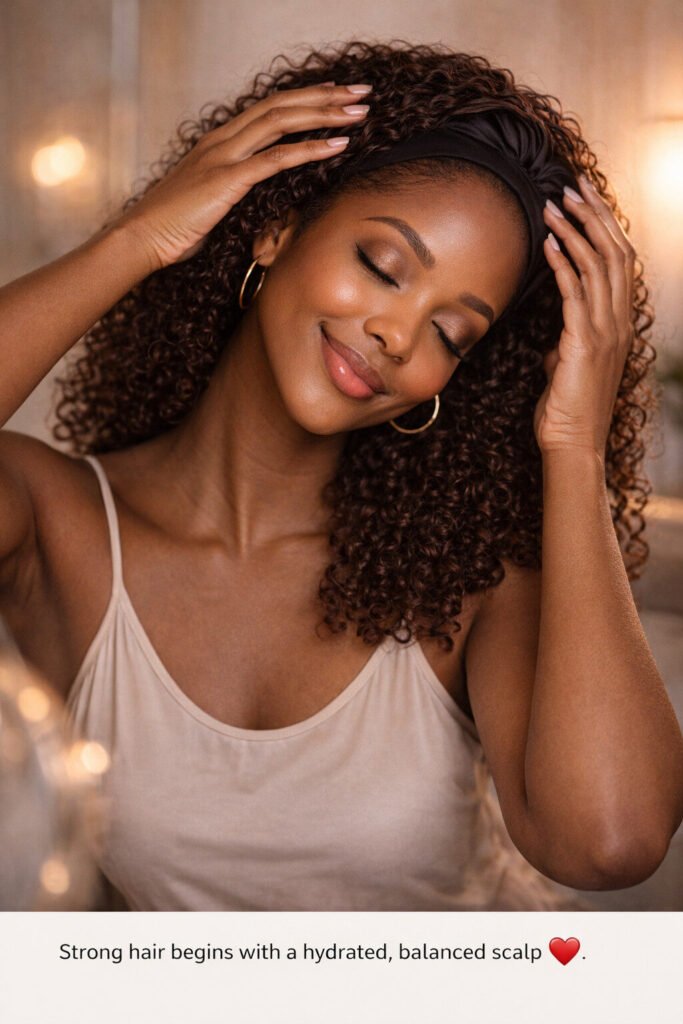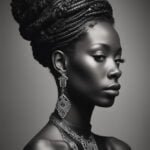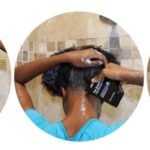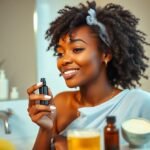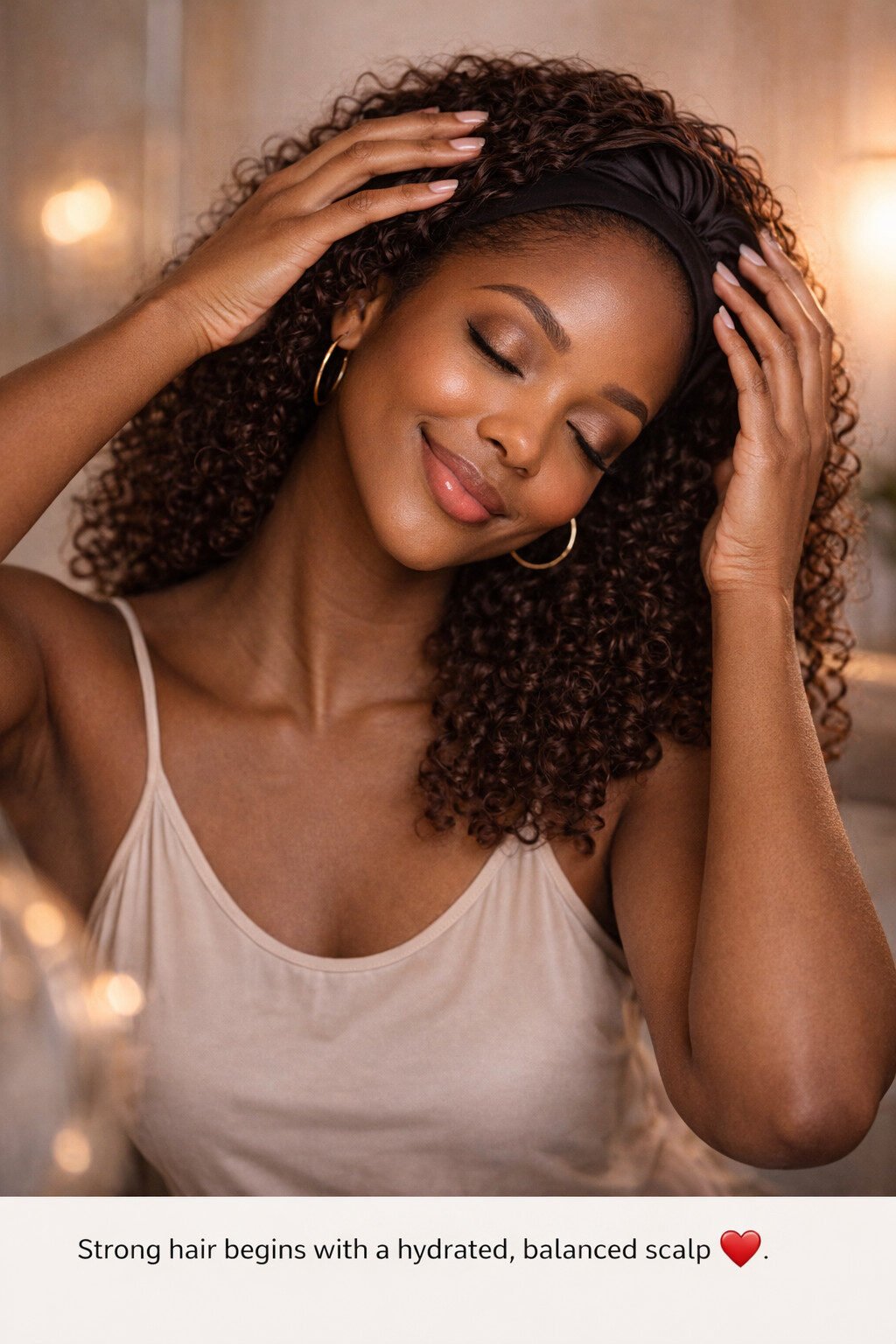
Beautiful hair isn’t just about what you see — it’s about what *starts beneath the surface*. A healthy scalp is the foundation for strong, thriving Black hair. When your scalp is balanced and nourished, your strands can grow with resilience, shine, and softness — from root to tip.
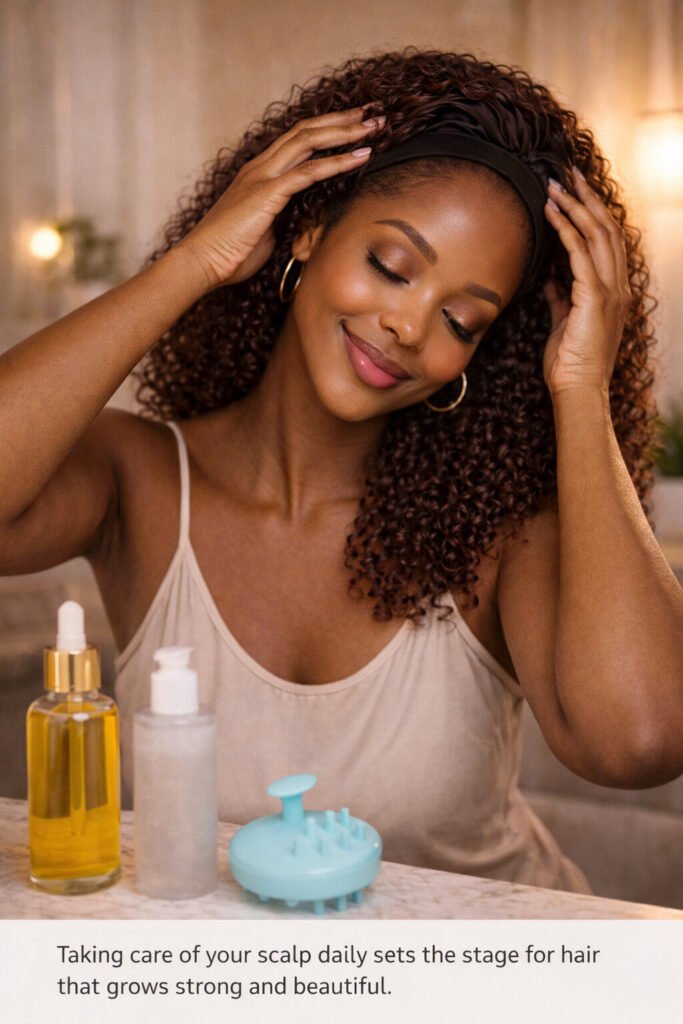
Taking care of your scalp daily sets the stage for hair that grows strong and beautiful.
Key Takeaways
- Cleaning your scalp regularly prevents buildup from oils, products, and dead skin.
- Regular massage increases blood flow, supporting follicle health.
- A balanced routine includes cleansing, moisturizing, and targeted treatments.
- Gentle styling and avoiding tension helps protect scalp and hair follicles.
- Nutrition, hydration, and stress management all play a role in scalp health.
Why Scalp Health Matters
Your scalp is the soil that nourishes every strand of hair you grow. When that soil is dry, clogged, irritated, or inflamed, your hair may struggle — resulting in slower growth, breakage, itchiness, dandruff, and flaky buildup. Healthy hair growth starts here, and knowing how to nourish your scalp makes all the difference.
Cleanse Without Stripping
Gently cleansing your scalp removes product buildup, sweat, and excess sebum that can clog follicles and slow growth. Use a sulfate-free shampoo or co-wash that balances cleansing power with moisture preservation. Too much washing can strip natural oils, so aim for once a week or every other week depending on your hair’s needs.
Massage for Circulation
Massaging your scalp isn’t just soothing — it stimulates blood flow, which helps nourish hair roots. Use gentle circular motions with your fingertips for 2–5 minutes, a few times each week. You can do this with or without a lightweight oil to further enhance moisture and shine.
Hydrate and Moisturize
A dry scalp can lead to itchiness, cracks, and flakiness. Look for products that contain hydrating ingredients like aloe vera, glycerin, jojoba oil, or argan oil to restore balance without clogging pores.
Top Products That Support Scalp Health
| Product Type | Benefits | Shop |
|---|---|---|
| Sulfate-Free Shampoo | Gently cleanses without stripping oils | Shop |
| Scalp Massage Oil | Boosts circulation + hydrates | Shop |
| Scalp Serum/Treatment | Targets dryness & irritation | Shop |
| Scalp Brush / Exfoliator | Removes buildup safely | Shop |
| Leave-In Scalp Moisturizer | Daily hydration and comfort | Shop |
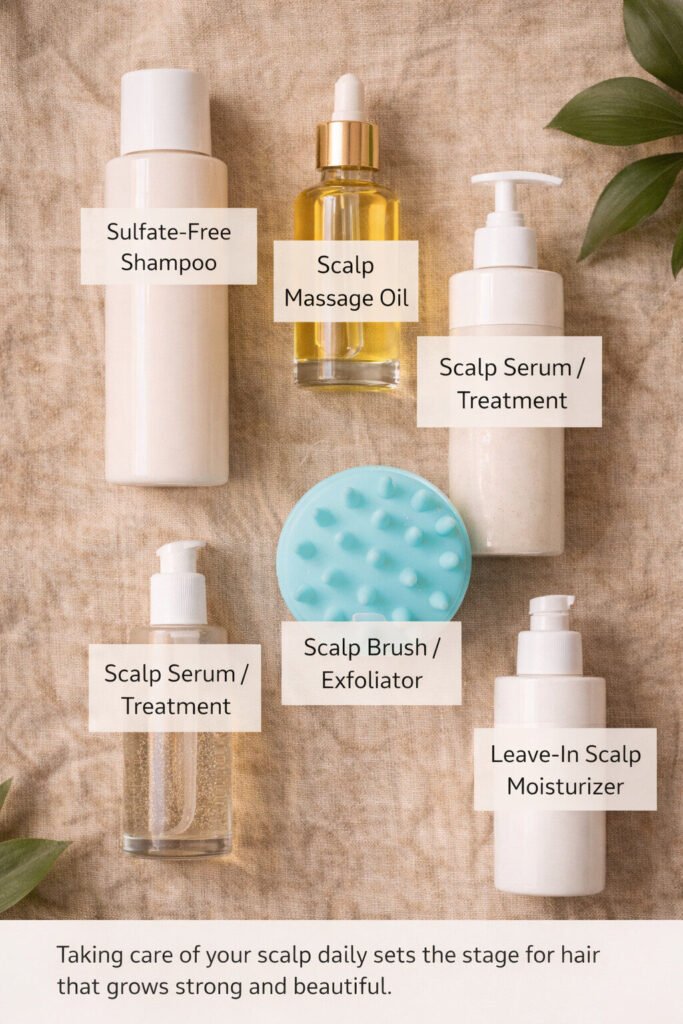
Your scalp care essentials laid out for an empowering routine.
Step-by-Step Scalp Care Routine
1. Wash & Remove Buildup
Buildup from oils, gels, and products can suffocate your scalp. Use a gentle shampoo or co-wash to cleanse and refresh. Since Black hair tends to be drier and more fragile, don’t overwash — aim for today’s schedule that suits your lifestyle and texture.
2. Scalp Massage
After cleansing, apply a tiny amount of a nourishing oil and massage for a few minutes. This encourages circulation and helps products absorb.
3. Targeted Treatments
If you experience dryness or irritation, look for scalp serums or soothing treatments designed to calm inflammation and hydrate. Natural extracts like aloe vera or peppermint can feel cooling and refreshing.
4. Protective Styling & Gentle Handling
Avoid excessive tight hairstyles and manipulation — these can tug on the scalp, irritate follicles, and may lead to breakage or traction alopecia. Protective styles like twists and braids can be helpful, but make sure they’re not too tight.
Common Scalp Issues & How to Handle Them
Dry, Flaky Scalp
Use gentle hydration products, avoid harsh sulfates, and don’t scratch — which can worsen flakiness. Try a weekly scalp exfoliation with a soft brush or scrub to help slough away dead skin cells.
Dandruff or Itchiness
Look for scalp treatments with calming ingredients like tea tree oil or aloe. Avoid over-washing; too much cleansing can strip natural oils and trigger dryness.
Slow Growth or Breakage
Nutrients, hydration, and low-tension styles are key. Massage and scalp-focused treatments help support healthy follicle function.
Lifestyle Habits That Support Scalp Health
- Hydrate with water throughout the day to help your scalp’s overall moisture balance.
- Eat a balanced diet rich in iron, zinc, omega-3s, and vitamins.
- Avoid excessive heat styling which can dry out both hair and scalp.
- Sleep on satin bonnets or pillowcases to preserve oils and prevent friction.
FAQs
How often should I wash my hair and scalp?
It depends on your texture, activity level, and styling — typically once a week or every other week is a good starting point for Black hair types.
Is scalp massage really effective?
Yes! It increases blood circulation, helping nourish hair roots and can support growth when done consistently.
Can I use oils on my scalp?
Yes — lightweight oils like jojoba, argan, or castor can help seal moisture without weighing hair down.
Should I exfoliate my scalp?
Occasional exfoliation removes dead skin and buildup, but be gentle — too much can irritate.
To Close
Your hair’s strength and shine start at the scalp — the soil from which your beautiful strands grow. Treat it with the love, hydration, and attention it deserves, and you’ll see the difference in your hair’s growth, texture, and manageability.
Ready to give your scalp the TLC it deserves? Explore scalp-friendly products above and build a routine that nourishes from root to gorgeous ends.
